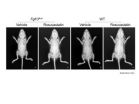(Press-News.org) From accessible and affordable health care to reproductive technologies, the justice and well-being of our society depend on the ability of people to identify key issues, articulate their values and concerns, deliberate openly and respectfully, and find the most defensible ways forward. But what are the best educational practices to support these societal conversations?
The Hastings Center and the Presidential Commission for the Study of Bioethical Issues have teamed up to publish a series of essays to highlight the best practices in teaching bioethics and to identify gaps in our knowledge of how best to inspire and increase moral understanding, analytical thinking in the moral domain, and professional integrity. The first three of these essays, which appear in the current Hastings Center Report, focus on bioethics education for practicing clinicians.
"The Presidential Commission for the Study of Bioethical Issues and The Hastings Center are committed to improving the ethical literacy of the American public in the domain of bioethics," states an introduction to the essays written by Lisa M. Lee, executive director of the Presidential commission; Mildred Z. Solomon, president of The Hastings Center; and Amy Gutmann, chair of the commission. "Taken together, these papers elucidate a broad range of considerations and point out new areas of research to discover how best to improve ethics literacy among scientists, health care practitioners, and the public."
The three published essays discuss bioethics education for nurses, doctors, and medical students.
"Enhancing Moral Agency: Clinical Ethics Residency for Nurses" describes a program developed and run by two large northeastern academic medical centers to increase nurses' moral agency–an enhanced ability to bring about change–in order to improve patient care. An insight from the program is that having knowledge of clinical ethics is not enough to develop moral agency. In addition to classroom lectures on ethics, the program incorporated role-play and simulation, clinical mentorship, and quarterly sessions in which graduates have the opportunity to build confidence in their agency and the skills to act on their insights. Ellen Robinson, a nurse and ethicist at Massachusetts General Hospital, and her co-authors, conclude that the program met its goal of improving nurses' agency and "demonstrated early evidence of a positive effect on patient care."
"Emerging Ethical Issues in Reproductive Medicine: Are Bioethics Educators Ready?" discusses an empirical study of educators involved in graduate-level training and physicians who deliver reproductive health care. The study revealed a mismatch between the reproductive ethics issues that the bioethics educators consider most important and the ethical dilemmas that the doctors face in daily practice. The authors, led by Ruth M. Farrell, a physician and ethicist at Cleveland Clinic and Case Western Reserve, recommend that the bioethics and medical communities work together to develop appropriate content in bioethics curricula. They also recommend fuller integration of clinical consultation into the practice of reproductive medicine.
"On Cultivating the Courage to Speak Up: The Critical Role of Attendings in the Moral Development of Physicians in Training" uses two cases to illustrate the limitations of formal ethics education and the need for attending physicians and health care institutions to produce a cultural environment where physicians-in-training are invited to voice their views about patient care and where they will feel safe doing so. The cases come from the experience of the author, Divya Yerramilli, a medical student at the University of Pennsylvania. In the first case, the attending physician stifled discussion of an ethical dilemma in the care of a patient with widespread ovarian cancer. In the second case, the senior attending physician encouraged medical students and others to voice their views about an ethical decision involving a patient with alcoholic liver disease and liver failure. Although medical students receive classroom instruction in ethics, Yerramilli writes that without ethical discussion of patients in the clinic, and the welcoming of diverse views, the classroom ethics lessons will be unlearned.
Other papers, to be published in future issues of the Hastings Center Report, will address the teaching of pediatric ethics issues, bioethics education for science and technology graduate students, bioethics professionals, community health workers, and secondary school students. The papers are edited by Mildred Solomon and Lisa M. Lee. Lee and Solomon will lead a session on bioethics education at the annual meeting of the American Society for Bioethics and Humanities in San Diego on October 17.
INFORMATION: END
Why bioethics literacy matters
The Hastings Center and the Presidential Commission for the Study of Bioethical Issues collaborate to publish a collection of papers on bioethics education, citing high stakes of success for health care and research
2014-09-17
ELSE PRESS RELEASES FROM THIS DATE:
Smallest known galaxy with a supermassive black hole
2014-09-17
SALT LAKE CITY, Sept. 17, 2014 – A University of Utah astronomer and his colleagues discovered that an ultracompact dwarf galaxy harbors a supermassive black hole – the smallest galaxy known to contain such a massive light-sucking object. The finding suggests huge black holes may be more common than previously believed.
"It is the smallest and lightest object that we know of that has a supermassive black hole," says Anil Seth, lead author of an international study of the dwarf galaxy published in Thursday's issue of the journal Nature. "It's also one of the most black ...
Gut bacteria, artificial sweeteners and glucose intolerance
2014-09-17
Artificial sweeteners, promoted as aids to weight loss and diabetes prevention, could actually hasten the development of glucose intolerance and metabolic disease; and they do it in a surprising way: by changing the composition and function of the gut microbiota – the substantial population of bacteria residing in our intestines. These findings, the results of experiments in mice and humans, were published today in Nature. Among other things, says Dr. Eran Elinav of the Weizmann Institute's Immunology Department, who led this research together with Prof. Eran Segal of Computer ...
New branch added to European family tree
2014-09-17
The setting: Europe, about 7,500 years ago.
Agriculture was sweeping in from the Near East, bringing early farmers into contact with hunter-gatherers who had already been living in Europe for tens of thousands of years.
Genetic and archaeological research in the last 10 years has revealed that almost all present-day Europeans descend from the mixing of these two ancient populations. But it turns out that's not the full story.
Researchers at Harvard Medical School and the University of Tübingen in Germany have now documented a genetic contribution from a third ancestor: ...
Natural born killers: Chimpanzee violence is an evolutionary strategy
2014-09-17
ANN ARBOR—Man's nearest relatives kill each other in order to eliminate rivals and gain better access to territory, mates, food or other resources—not because human activities have made them more aggressive.
That is the conclusion of an international analysis of lethal aggression among different groups of chimpanzees in Africa studied over five decades. The research appears in the current issue of Nature.
"Observations that chimpanzees kill members of their own species have influenced efforts to understand the evolution of human violence," said University of Michigan ...
What set the Earth's plates in motion?
2014-09-17
The mystery of what kick-started the motion of our earth's massive tectonic plates across its surface has been explained by researchers at the University of Sydney.
"Earth is the only planet in our solar system where the process of plate tectonics occurs," said Professor Patrice Rey, from the University of Sydney's School of Geosciences.
"The geological record suggests that until three billion years ago the earth's crust was immobile so what sparked this unique phenomenon has fascinated geoscientists for decades. We suggest it was triggered by the spreading of early ...
Nature of war: Chimpanzees inherently violent according to study
2014-09-17
(Chicago) -- Of all of the world's species, humans and chimpanzees are some of the only to engage in coordinated attacks on other members of their same species. Jane Goodall was among the first to introduce the occurrence of lethal inter-community killings and since then primatologists and anthropologists have long debated the concept of warfare in this genus. Research theories have pointed to increased gains and benefits of killing off competitors and opening up increased access to key resources such as food or mates. In contrast, others have argued that warfare is a result ...
Modern Europeans descended from three groups of ancestors
2014-09-17
New studies of ancient DNA are shifting scientists' ideas of how groups of people migrated across the globe and interacted with one another thousands of years ago. By comparing nine ancient genomes to those of modern humans, Howard Hughes Medical Institute (HHMI) scientists have shown that previously unrecognized groups contributed to the genetic mix now present in most modern-day Europeans.
"There are at least three major, highly differentiated populations that have contributed substantial amounts of ancestry to almost everybody that has European ancestry today," says ...
Chimpanzee lethal aggression a result of adaptation rather than human impacts
2014-09-17
In the 1970s, Jane Goodall's reports of chimpanzee violence caught the attention of a global audience. Since then, many people have compared chimpanzee intergroup aggression to primitive warfare and have argued that chimpanzee violence is an adaptive strategy that gives the perpetrators an edge. Others have argued that lethal aggression is the consequence of human activities such as provisioning (artificial feeding) by researchers or habitat destruction. A new study of the pattern of intergroup aggression in chimpanzees and their close relatives, bonobos (also called pygmy ...
Researchers use iPS cells to show statin effects on diseased bone
2014-09-17
Skeletal dysplasia is a group of rare diseases that afflict skeletal growth through abnormalities in bone and cartilage. Its onset hits at the fetal stage and is caused by genetic mutations. A mutation in the gene encoding fibroblast growth factor receptor 3 (FGFR3) has been associated with two types of skeletal dysplasia, thanatophoric dysplasia (TD), a skeletal dysplasia that cause serious respiratory problems at birth and is often lethal, and achondroplasia (ACH), which causes stunted growth and other complications throughout life. Several experimental treatments have ...
Math model designed to replace invasive kidney biopsy for lupus patients
2014-09-17
COLUMBUS, Ohio – Mathematics might be able to reduce the need for invasive biopsies in patients suffering kidney damage related to the autoimmune disease lupus.
In a new study, researchers developed a math model that can predict the progression from nephritis – kidney inflammation – to interstitial fibrosis, scarring in the kidney that current treatments cannot reverse. A kidney biopsy is the only existing way to reach a definitive diagnosis of the damage and its extent.
The model could also be used to monitor the effectiveness of experimental treatments for inflammation ...
LAST 30 PRESS RELEASES:
Bacteria frozen in ancient underground ice cave found to be resistant against 10 modern antibiotics
Rhododendron-derived drugs now made by bacteria
Admissions for child maltreatment decreased during first phase of COVID-19 pandemic, but ICU admissions increased later
Power in motion: transforming energy harvesting with gyroscopes
Ketamine high NOT related to treatment success for people with alcohol problems, study finds
1 in 6 Medicare beneficiaries depend on telehealth for key medical care
Maps can encourage home radon testing in the right settings
Exploring the link between hearing loss and cognitive decline
Machine learning tool can predict serious transplant complications months earlier
Prevalence of over-the-counter and prescription medication use in the US
US child mental health care need, unmet needs, and difficulty accessing services
Incidental rotator cuff abnormalities on magnetic resonance imaging
Sensing local fibers in pancreatic tumors, cancer cells ‘choose’ to either grow or tolerate treatment
Barriers to mental health care leave many children behind, new data cautions
Cancer and inflammation: immunologic interplay, translational advances, and clinical strategies
Bioactive polyphenolic compounds and in vitro anti-degenerative property-based pharmacological propensities of some promising germplasms of Amaranthus hypochondriacus L.
AI-powered companionship: PolyU interfaculty scholar harnesses music and empathetic speech in robots to combat loneliness
Antarctica sits above Earth’s strongest “gravity hole.” Now we know how it got that way
Haircare products made with botanicals protects strands, adds shine
Enhanced pulmonary nodule detection and classification using artificial intelligence on LIDC-IDRI data
Using NBA, study finds that pay differences among top performers can erode cooperation
Korea University, Stanford University, and IESGA launch Water Sustainability Index to combat ESG greenwashing
Molecular glue discovery: large scale instead of lucky strike
Insulin resistance predictor highlights cancer connection
Explaining next-generation solar cells
Slippery ions create a smoother path to blue energy
Magnetic resonance imaging opens the door to better treatments for underdiagnosed atypical Parkinsonisms
National poll finds gaps in community preparedness for teen cardiac emergencies
One strategy to block both drug-resistant bacteria and influenza: new broad-spectrum infection prevention approach validated
Survey: 3 in 4 skip physical therapy homework, stunting progress
[Press-News.org] Why bioethics literacy mattersThe Hastings Center and the Presidential Commission for the Study of Bioethical Issues collaborate to publish a collection of papers on bioethics education, citing high stakes of success for health care and research




